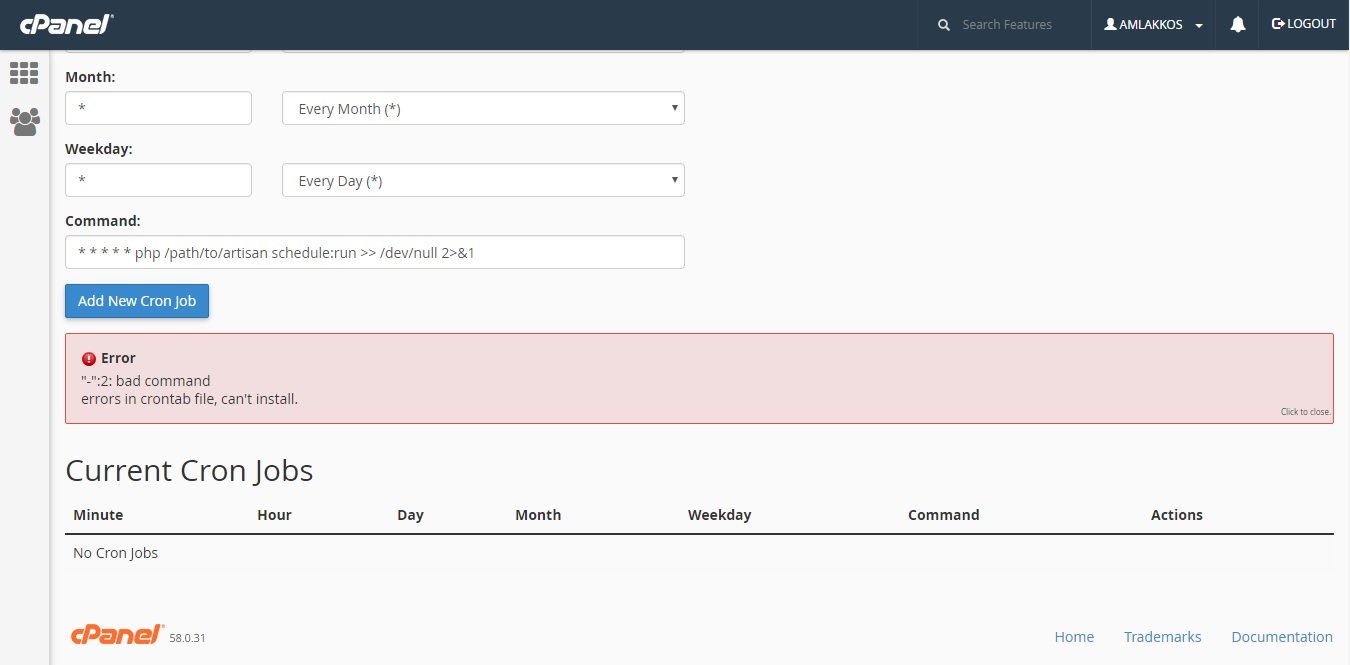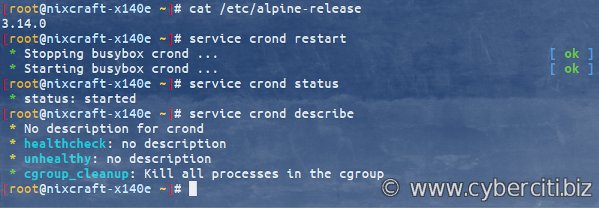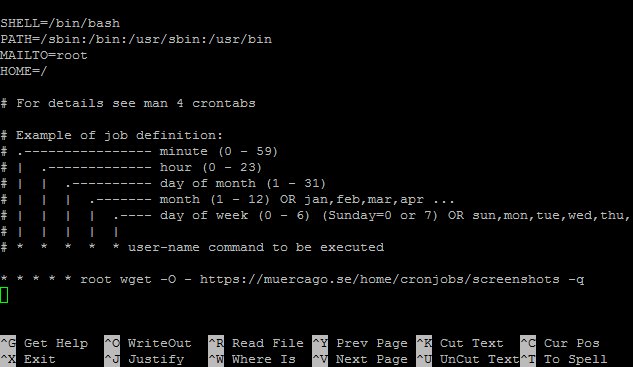Looking for a way to automate tasks in your system without the hassle of constantly monitoring and executing them? Well, look no further! The solution lies in implementing a cron job every 12 hours. With a cron job, you can schedule repetitive tasks to run automatically at specific time intervals, relieving you of the manual effort. This simple yet powerful feature is a game-changer when it comes to streamlining your workflow and increasing efficiency. So, let’s dive into how you can set up and benefit from a cron job every 12 hours.
Cron Job Every 12 Hours
Are you tired of repetitive tasks that consume your time and energy? Do you wish there was a way to automate certain processes and free up your schedule for more important tasks? Look no further than a cron job! In this article, we will delve into the world of cron jobs and explore the benefits and implementation of running a cron job every 12 hours.
What is a Cron Job?
A cron job, short for cronograph job, is a time-based scheduler in Unix-like operating systems. It allows users to schedule tasks to run automatically at specific time intervals or at predefined times. These tasks can range from simple commands to complex scripts, providing great flexibility in automating routine processes.
Advantages of Running Cron Jobs Every 12 Hours
Running a cron job every 12 hours can offer several advantages. Let’s explore some of them:
1. Increased Efficiency
By automating tasks that need to be executed multiple times a day, you can significantly improve your efficiency. Rather than manually performing these tasks, a cron job can handle them automatically, freeing up your time to focus on more important responsibilities.
2. Timely Updates and Notifications
Imagine having a system that sends you daily reports or updates every 12 hours. By scheduling cron jobs at regular intervals, you can ensure that you receive timely information without having to remember to check for updates manually. This can be particularly useful for monitoring server performance, receiving analytics reports, or staying up to date with important data.
3. Continual System Maintenance
Running cron jobs every 12 hours allows you to perform regular system maintenance tasks effortlessly. Whether it’s cleaning up temporary files, optimizing databases, or backing up crucial data, a scheduled cron job can keep your system running smoothly without interruption.
4. Improved Security
Regularly updating software, plugins, and extensions is essential for maintaining a secure system. By running a cron job every 12 hours to check for and install updates, you can ensure that your system is patched against any potential vulnerabilities. This proactive approach to security can significantly reduce the risk of security breaches and keep your data safe.
Implementing a Cron Job Every 12 Hours
Setting up a cron job to run every 12 hours may seem daunting, but it’s actually quite straightforward. Follow these steps to implement a cron job in your Unix-like operating system:
1. Access the Cron Configuration File
The first step is to locate and access the cron configuration file. In most Unix-like systems, this file is usually located at `/etc/crontab`.
2. Edit the Cron Configuration File
Open the cron configuration file using a text editor, such as vi or nano. Within the file, you will see multiple lines with fields separated by spaces or tabs. Each line represents a scheduled task.
3. Specify the Schedule
To schedule a task to run every 12 hours, add a new line to the cron configuration file. The format for specifying the schedule is as follows:
“`
0 */12 * * * user command
“`
In the above format, `0 */12 * * *` represents the time and frequency. The `user` field specifies the user account under which the command should run, and `command` represents the task or script you want to automate.
4. Save and Exit
After adding the new line with the desired schedule and command, save the cron configuration file and exit the text editor.
5. Restart the Cron Service
To ensure that the changes take effect, you need to restart the cron service. In most Unix-like systems, you can do this by running the following command:
“`
sudo service cron restart
“`
6. Verify the Cron Job
You can verify that the cron job is running correctly by checking the system logs or by running the following command:
“`
crontab -l
“`
This command lists all the cron jobs associated with the current user.
Common Use Cases for Cron Jobs Every 12 Hours
Cron jobs that run every 12 hours can be utilized in various scenarios. Let’s explore some common use cases:
1. Data Synchronization
If you have data that needs to be synchronized between different systems or databases, running a cron job every 12 hours can ensure that the data is up to date. This is particularly useful for e-commerce platforms, where inventory data needs to be synchronized between online and offline stores.
2. Report Generation
Generating reports and analytics can be time-consuming, especially if they require complex calculations or large datasets. By scheduling a cron job to run every 12 hours, you can automate the report generation process and ensure that the reports are always ready when you need them.
3. Content Updates
If you manage a website or a blog that requires frequent content updates, a cron job can simplify this process. By scheduling a job to run every 12 hours, you can automate the publishing of new content or update existing content based on predefined rules.
4. System Monitoring
Monitoring server performance, website uptime, or other system metrics is crucial for maintaining a reliable system. By running a cron job every 12 hours, you can automate the monitoring process and receive regular updates on the performance and health of your system.
In today’s fast-paced world, automating repetitive tasks is essential for improving efficiency and productivity. By leveraging the power of cron jobs and running them every 12 hours, you can streamline your workflows and focus on more critical responsibilities. Whether it’s automating system maintenance, receiving timely updates, or optimizing data synchronization, cron jobs offer a versatile solution for a wide range of tasks. So why wait? Start exploring the possibilities of running a cron job every 12 hours and unlock the potential of automation in your daily operations.
NodeJS : How can we run the node-cron job in every 12 hours interval?
Frequently Asked Questions
What is a Cron Job Every 12 Hours?
A Cron Job Every 12 Hours is a scheduled task that runs automatically on a server at specific intervals of 12 hours. It allows you to automate repetitive tasks or processes without manual intervention.
How do I set up a Cron Job Every 12 Hours?
To set up a Cron Job Every 12 Hours, you can use the crontab command on Unix-like systems. Open a terminal and type “crontab -e” to edit your crontab file. Then, add the following line to run a command or script every 12 hours: “0 */12 * * * your_command”.
Can I specify the exact time for the Cron Job to run every 12 hours?
Yes, you can specify the exact time for the Cron Job to run every 12 hours. Modify the crontab line to include the desired minute and hour values. For example, to run the job at 9:30 AM and 9:30 PM every day, you can use “30 9,21 * * * your_command”.
What if my server is not running 24/7? Will the Cron Job Every 12 Hours still work?
If your server is not running 24/7, the Cron Job Every 12 Hours will not work as expected. Cron jobs rely on the server being active at the scheduled times. If the server is offline during any of the scheduled intervals, the job will be skipped until the server is back online.
Can I run multiple Cron Jobs Every 12 Hours?
Yes, you can run multiple Cron Jobs Every 12 Hours. Each job needs to have a separate entry in the crontab file with its own unique schedule and command. Simply add additional lines following the same format as mentioned earlier, specifying different commands or scripts for each job.
Is there any way to view the logs or output of a Cron Job Every 12 Hours?
Yes, you can view the logs or output of a Cron Job Every 12 Hours. By default, the output of a cron job is sent via email to the owner of the crontab. You can redirect the output to a file by appending “>> /path/to/logfile” at the end of the crontab line. This will store the logs in the specified file for future reference.
Final Thoughts
A cron job scheduled to run every 12 hours can be a useful tool for automating repetitive tasks. With this setup, you can ensure that specific actions or commands are executed at regular intervals throughout the day. By implementing a cron job every 12 hours, you can effectively manage and maintain your systems without requiring constant manual intervention. This level of automation not only saves time and effort but also ensures consistency and reliability. Consider incorporating a cron job every 12 hours into your workflow to enhance productivity and efficiency.




